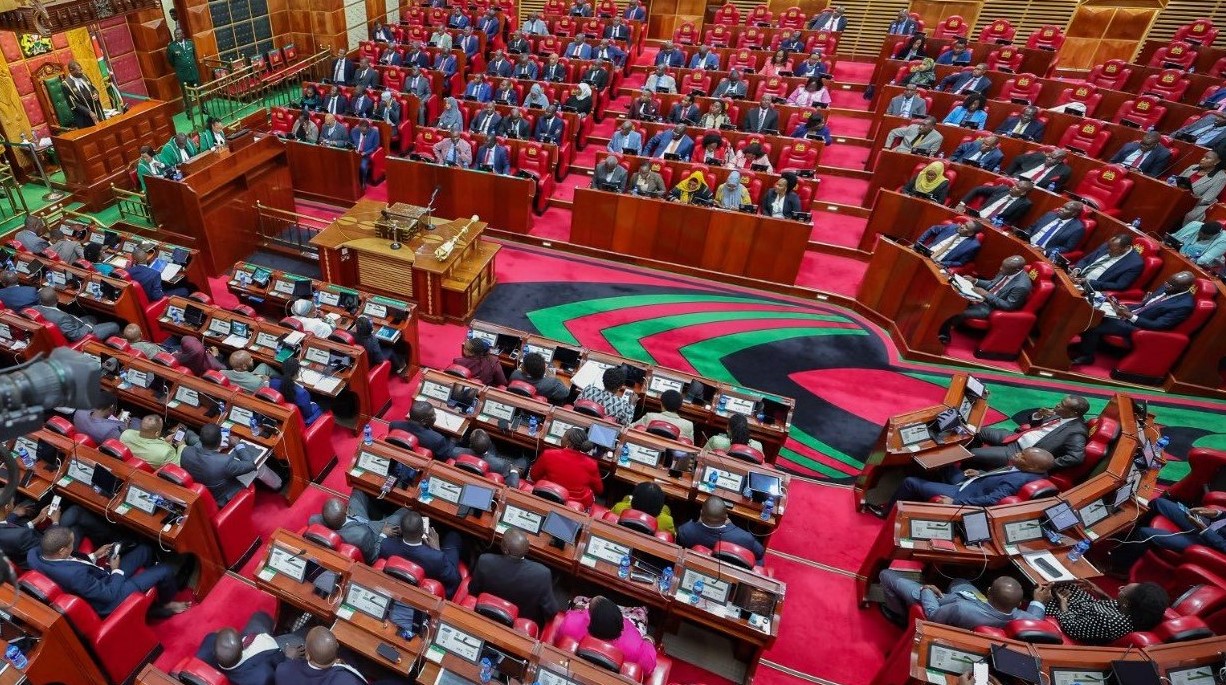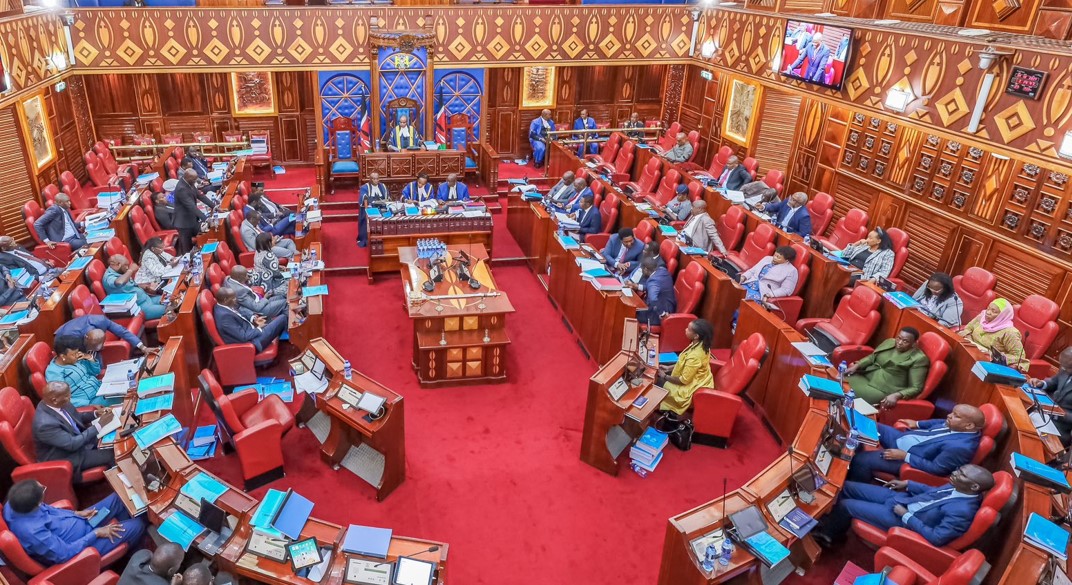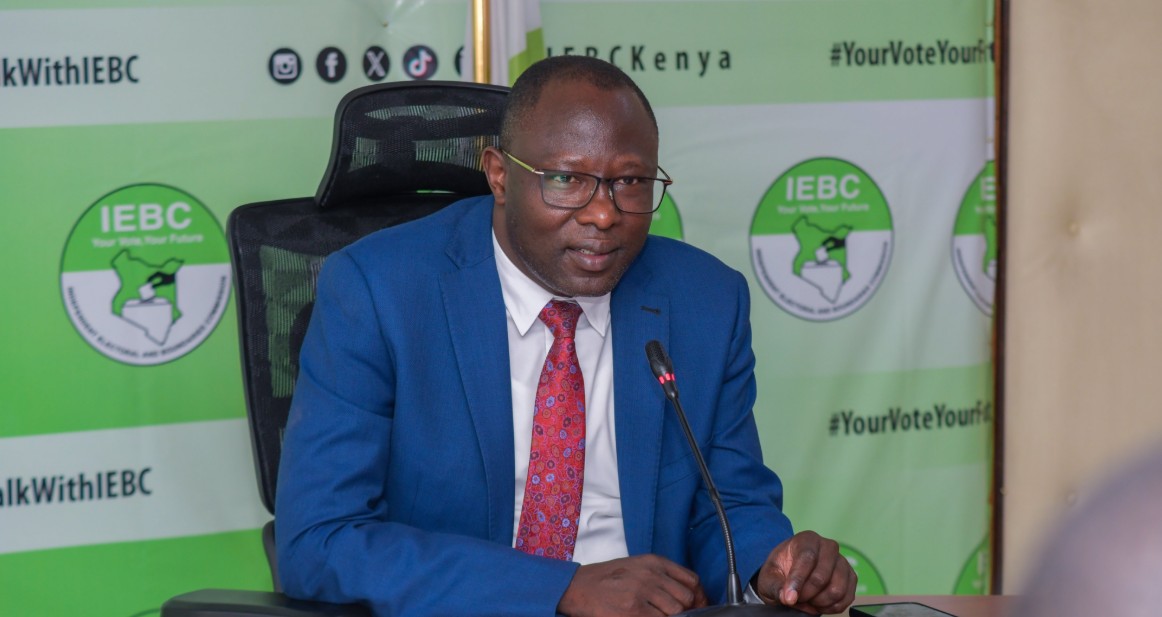Parliament shoots down proposal to punish party defectors

Members from the joint Justice and Legal Affairs Committees of the National Assembly and the Senate argued that the move would undermine democracy, hand excessive power to party leaders, and strip elected officials of their independence.
A proposal backed by President William Ruto and former Prime Minister Raila Odinga to give political parties more power to expel members deemed disloyal has been rejected by Parliament.
Members from the joint Justice and Legal Affairs Committees of the National Assembly and the Senate argued that the move would undermine democracy, hand excessive power to party leaders, and strip elected officials of their independence.
More To Read
- President Ruto launches Mombasa Commuter Rail Service, slashes travel costs to Sh50
- Maraga rules out working with President Ruto, open to alliance with Gachagua
- Ruto reserves 20 per cent of affordable housing units for teachers
- President Ruto backs UN peace efforts in Sudan, urges warring sides to end violence
- President Ruto defends teachers’ State House meeting amid backlash
- Sifuna’s Kenya Moja outfit vows to end Ruto’s reign in 2027
The plan, spearheaded by the National Dialogue Committee (Nadco), sought to amend laws to allow parties to deregister members who align with rival groups.
The proposed changes would have meant that politicians who associated with other parties would be considered to have resigned from their original outfits, leading to the loss of their seats.
The move was expected to affect Members of Parliament (MPs), governors, and Members of County Assemblies (MCAs), with Article 103 of the Constitution earmarked for amendment. Under the plan, the resignation or deregistration of a lawmaker would result in an automatic vacancy.
However, the proposal faced strong opposition from legal committees of both houses. The majority of committee members dismissed it as a threat to democracy, warning that it could be used to suppress dissent.
"The proposal is an affront to democracy because political parties are not as democratic as envisaged by the framers of the constitution," committee members stated in their report.
Tharaka MP Gitonga Murugara and Bomet Senator Hillary Sigei, who led the committee, argued that the amendments would give party leaders unchecked power over elected officials.
"This would breed dictatorship and subvert the will of the people, as the right of recall should only be exercised by voters and not political parties," the committee stated.
The committee further noted that existing provisions in the Political Parties Act were sufficient in regulating party discipline and that the proposed amendments might not achieve the intended goal.
"The committee suggested that the procedures of party discipline should be factual and meritorious," MPs said, adding that Parliament already has the authority to pass laws that promote fidelity to political parties.
Despite the strong rejection, a minority report presented by Ruaraka MP TJ Kajwang' and nominated Senator Catherine Mumma supported the amendments.
They argued that the current legal framework had failed to instil discipline in political parties, allowing defectors to undermine the structures of their former parties.
"Where a member of a political party was proposed for deregistration, they would still be entitled to due process and other safeguards, including recourse to the courts," their report read.
Currently, the Constitution states that an MP's seat becomes vacant if they resign from the party that sponsored their election.
A similar rule applies to independent candidates who join political parties after being elected. However, enforcement has been weak, allowing some politicians to switch allegiances without consequences.
This has created confusion in Parliament over which side holds the Majority, with parties struggling to maintain numbers.
The latest political battle over party loyalty has played out in Parliament, where a standoff over Majority and Minority positions was only resolved after a court ruling.
A three-judge bench ultimately determined that Azimio la Umoja, led by Raila, had the Majority in Parliament, while the Kenya Kwanza coalition, led by Ruto, formed the Minority.
As political tensions over party discipline persist, it remains unclear whether lawmakers will revisit the debate or seek alternative legal avenues to curb party defections.
Top Stories Today












































